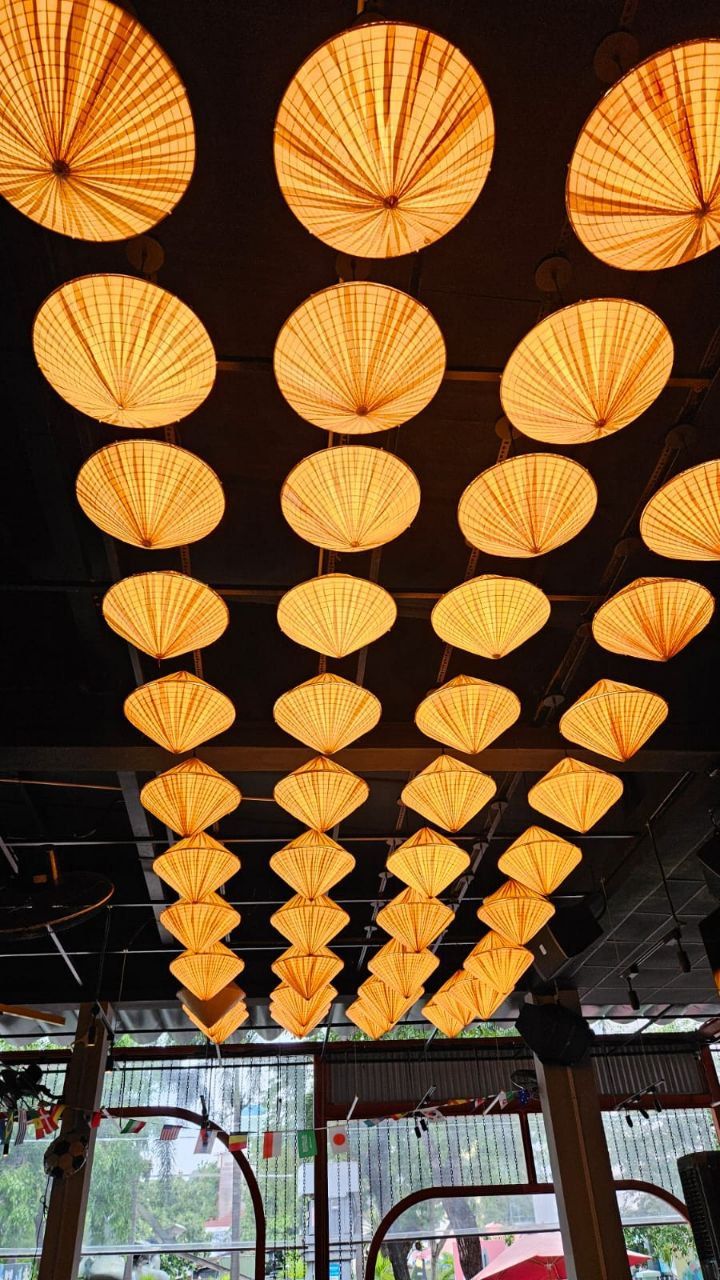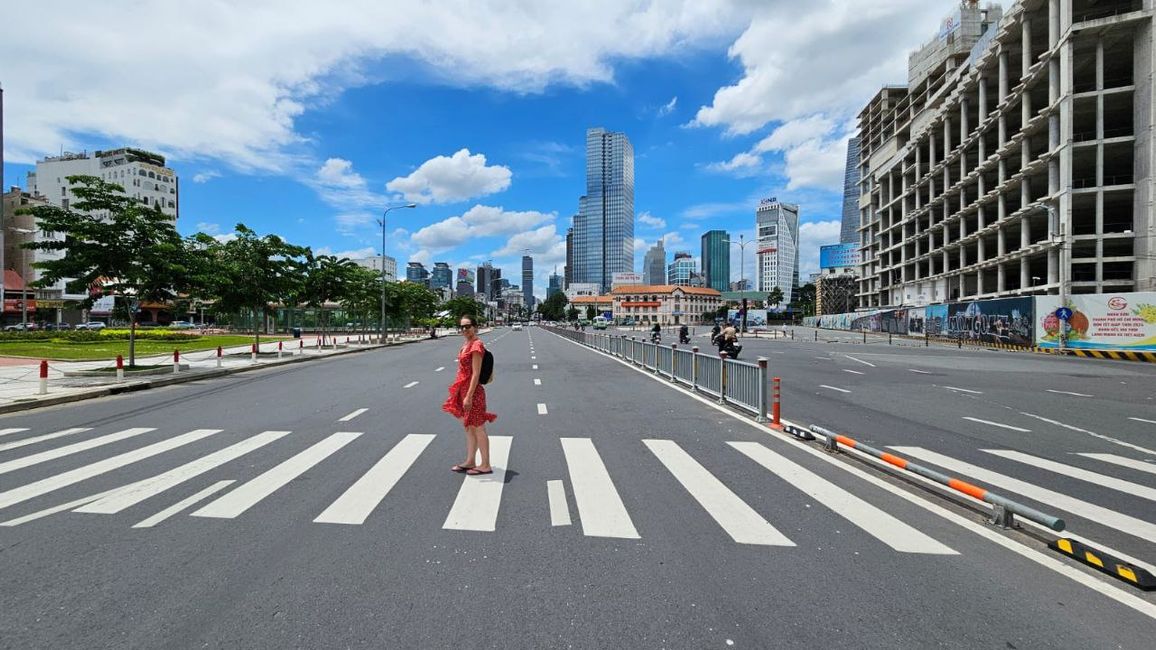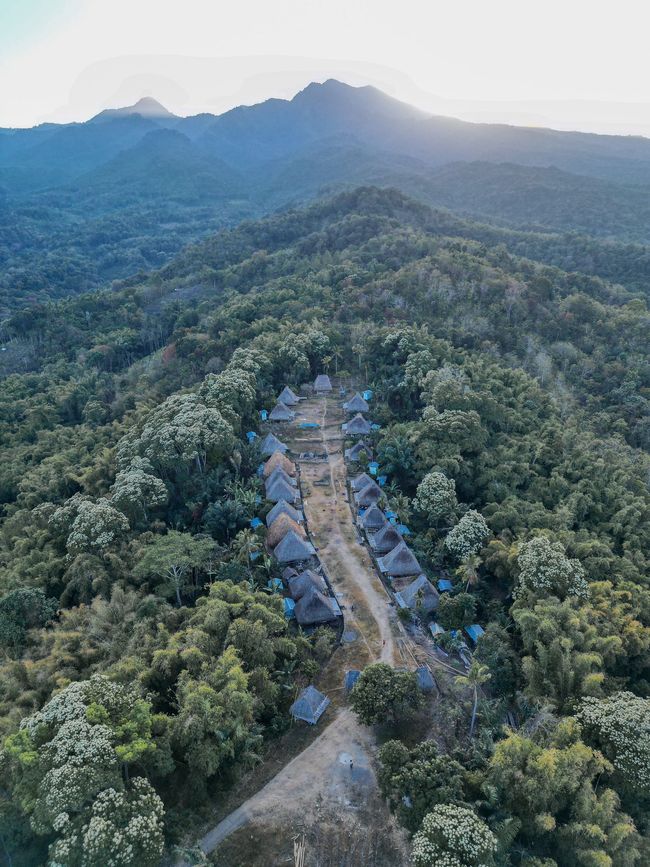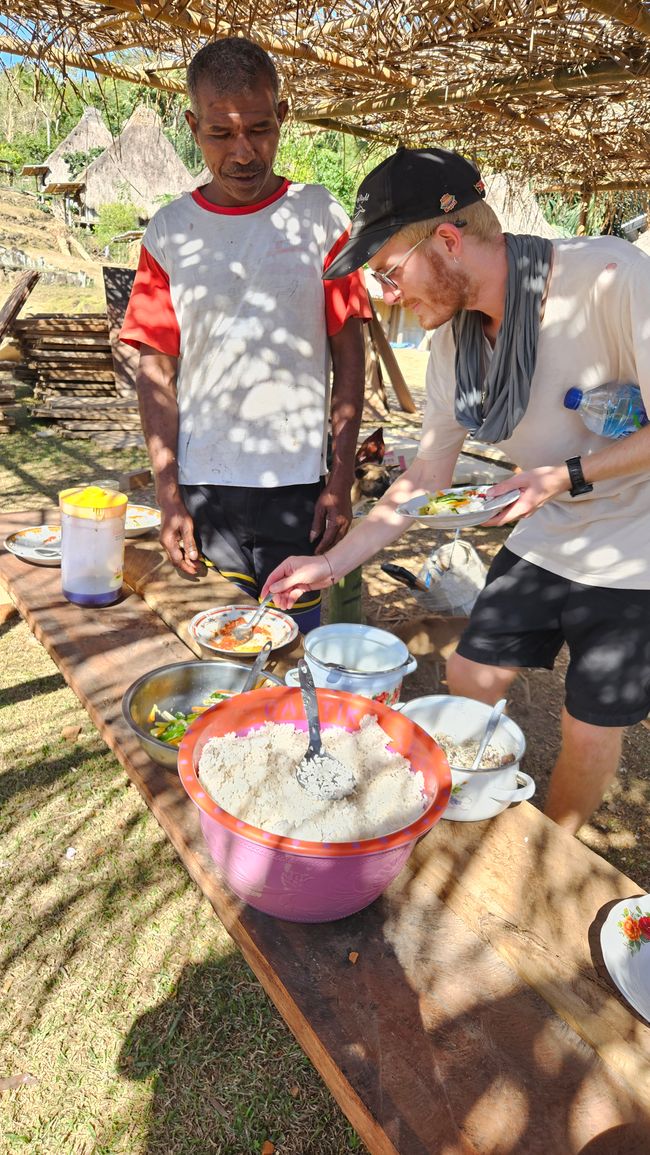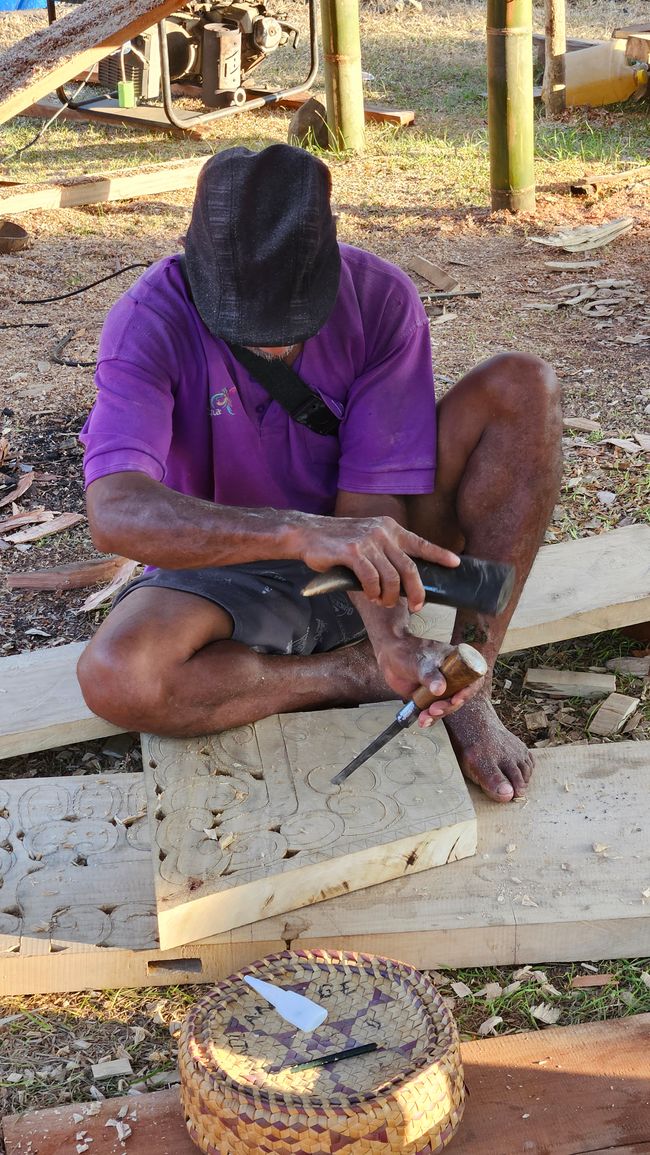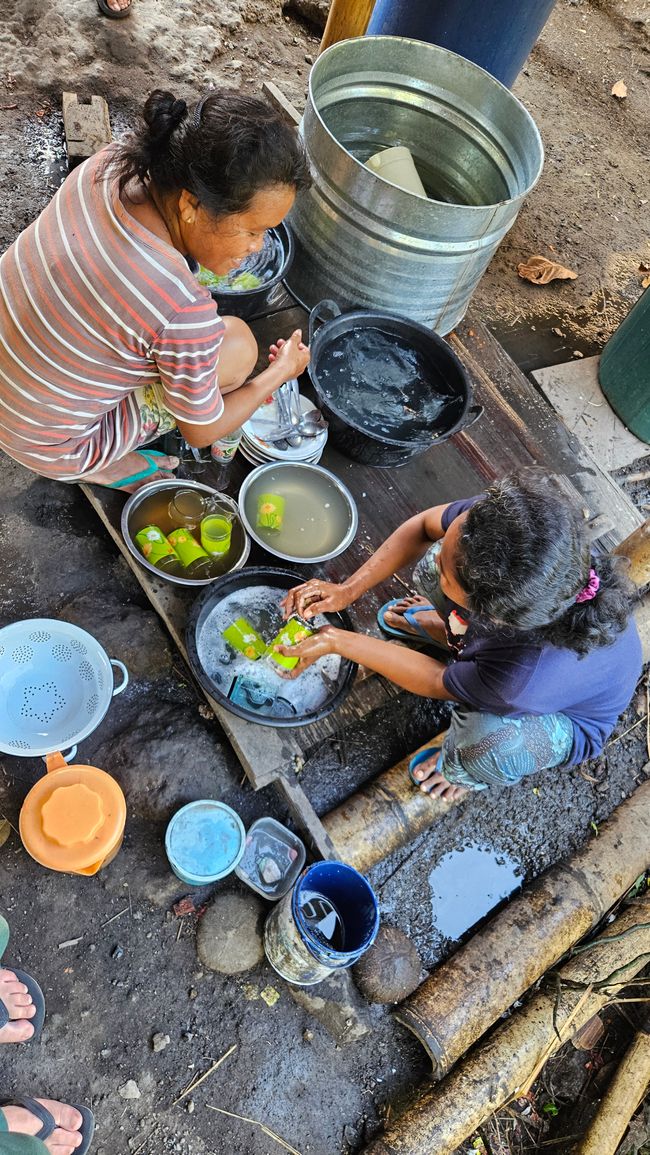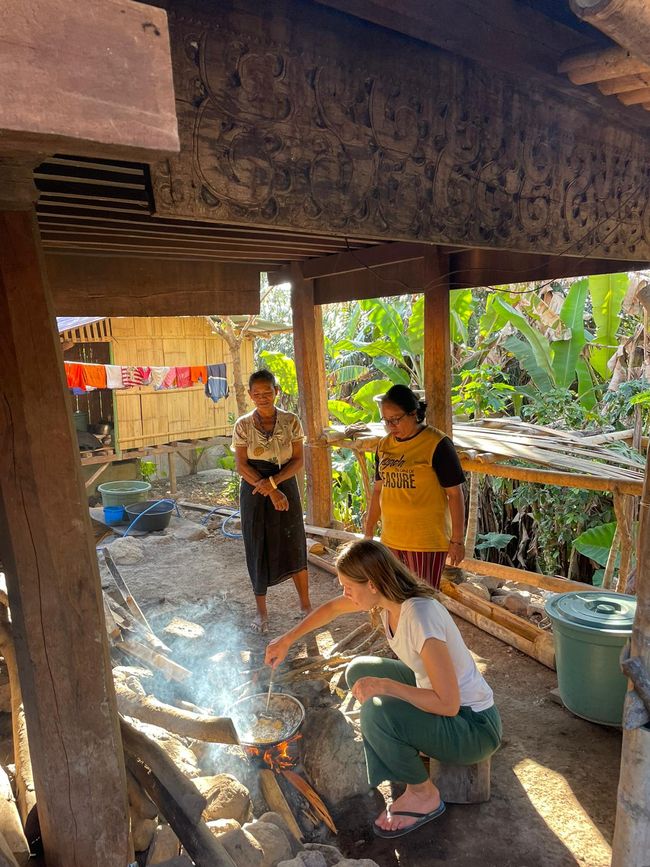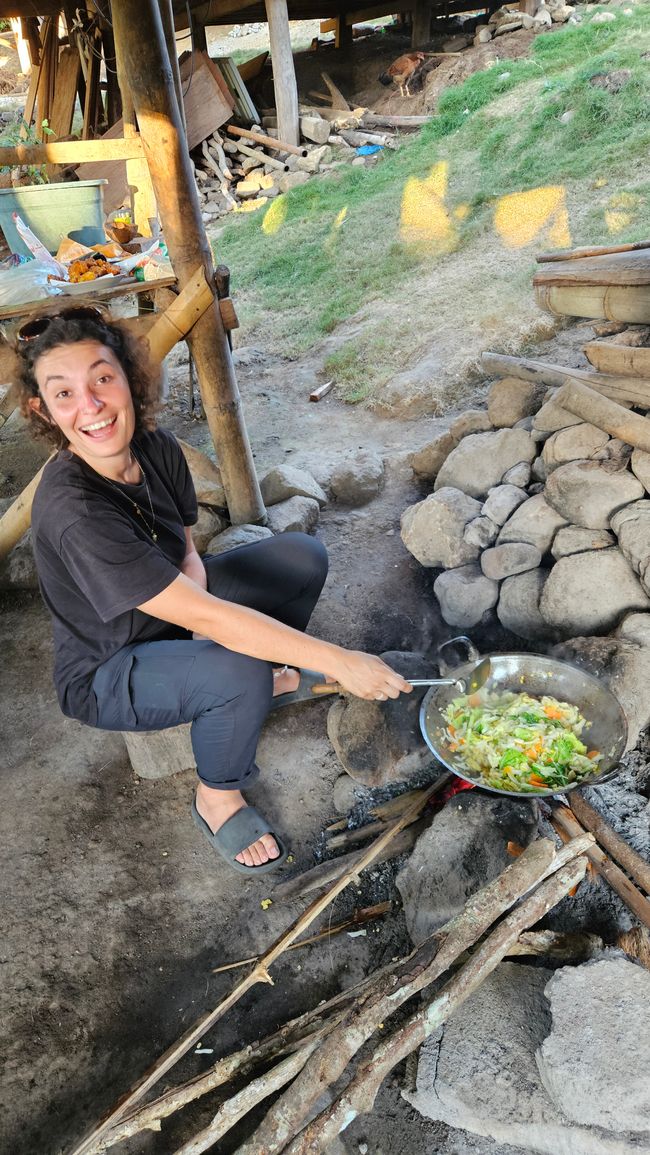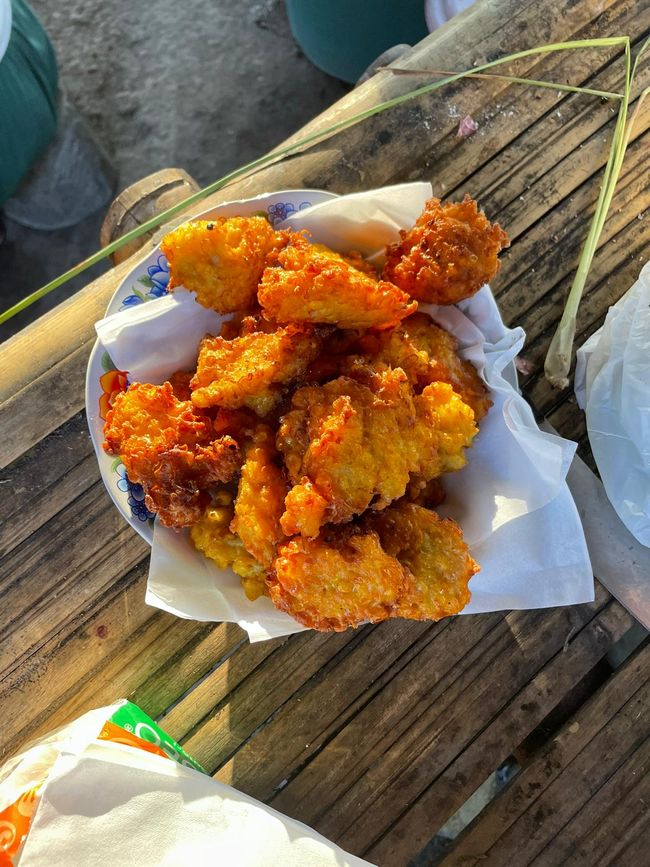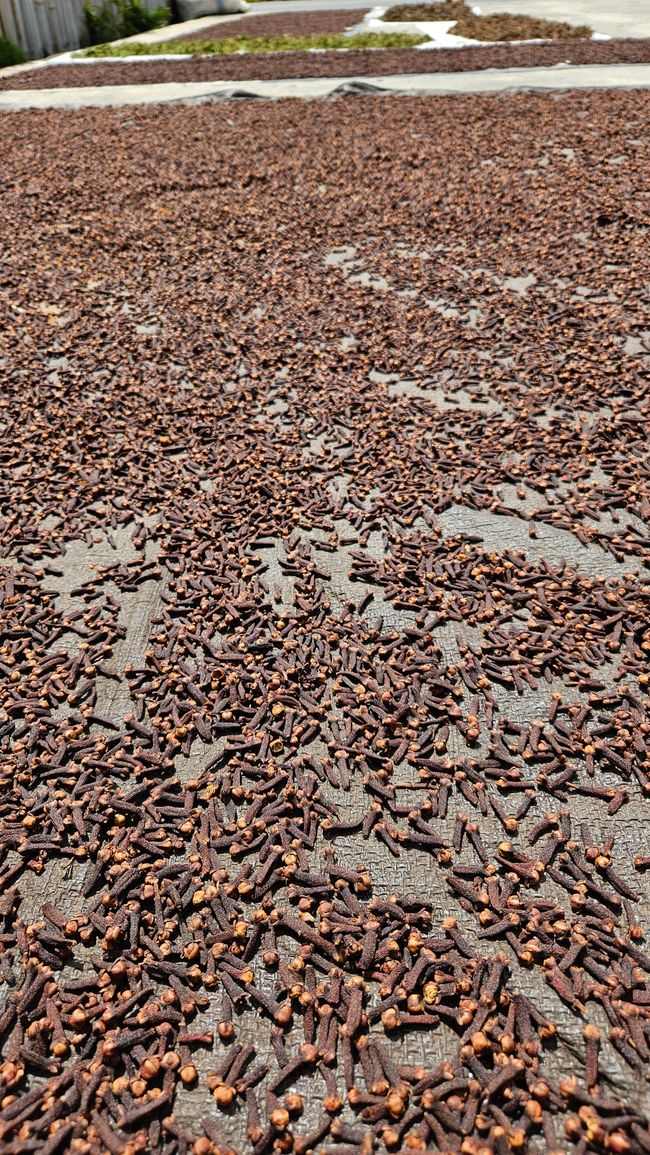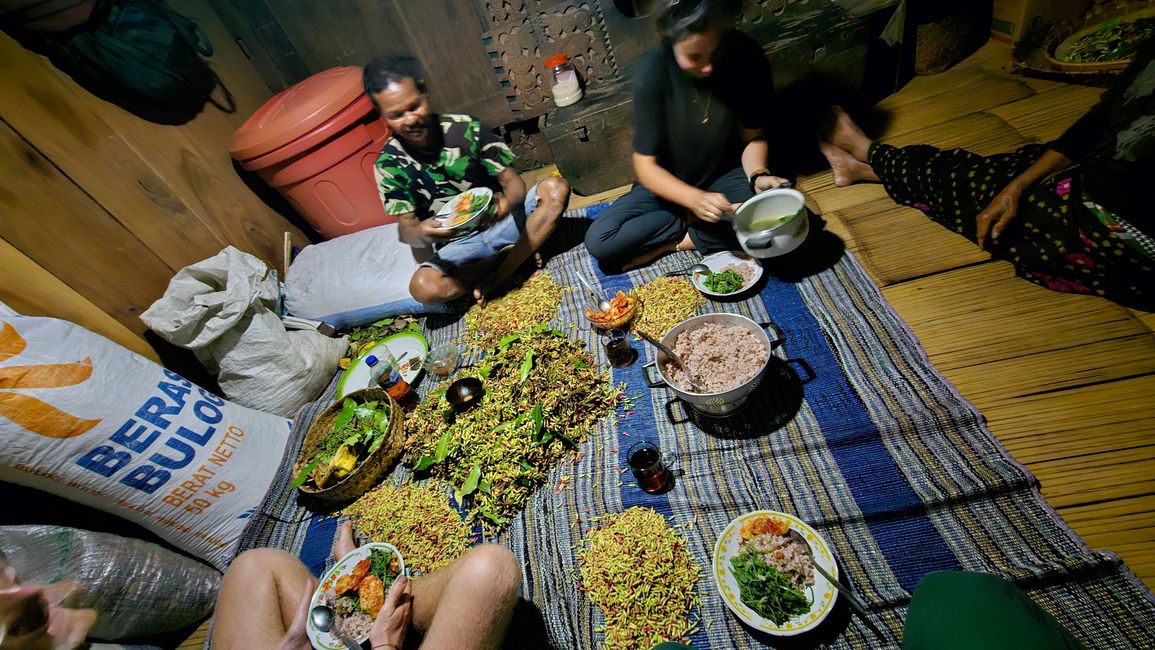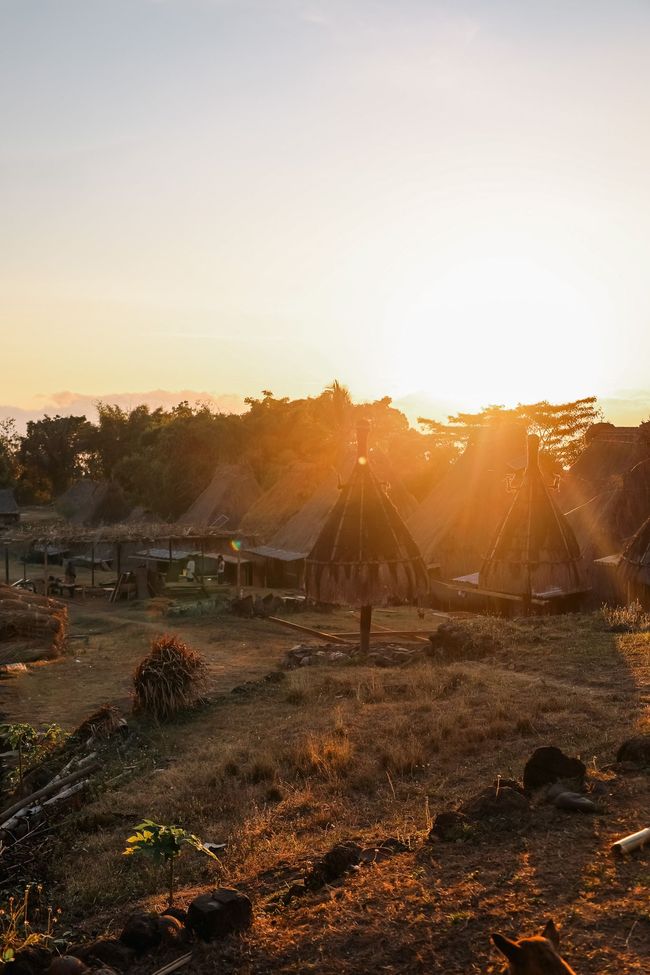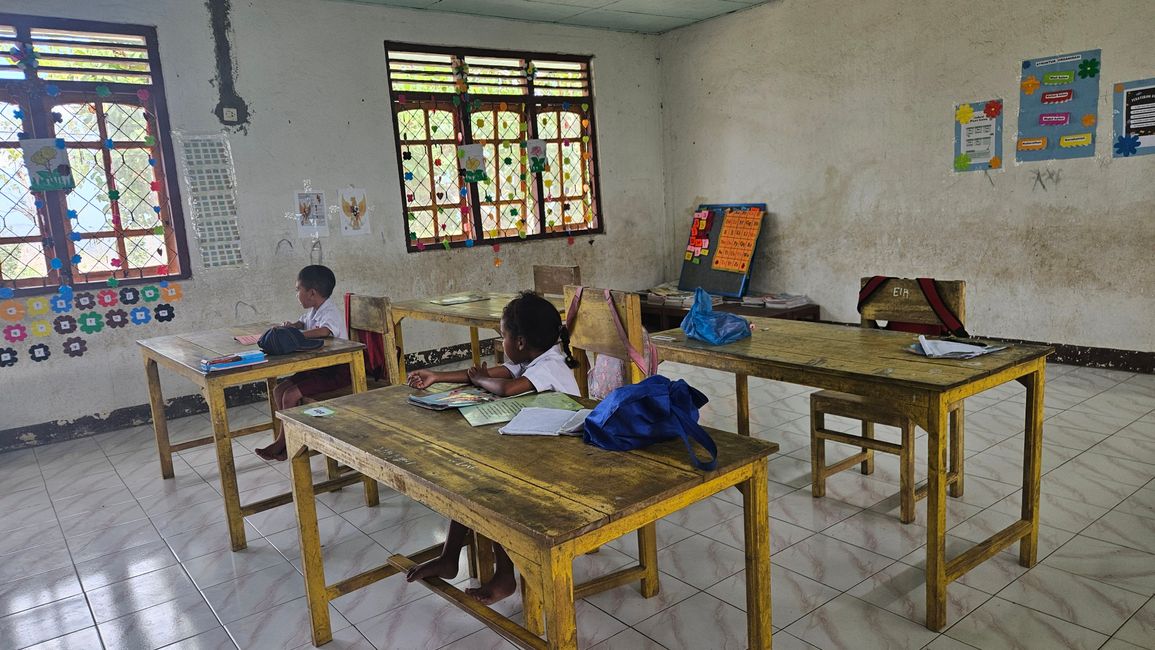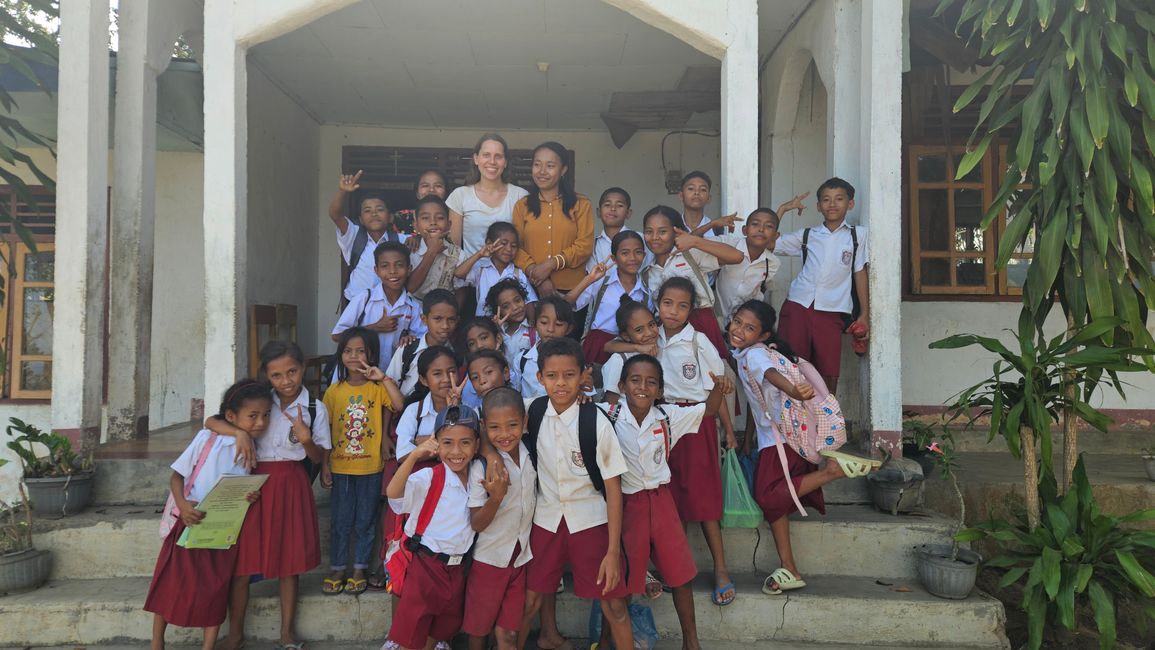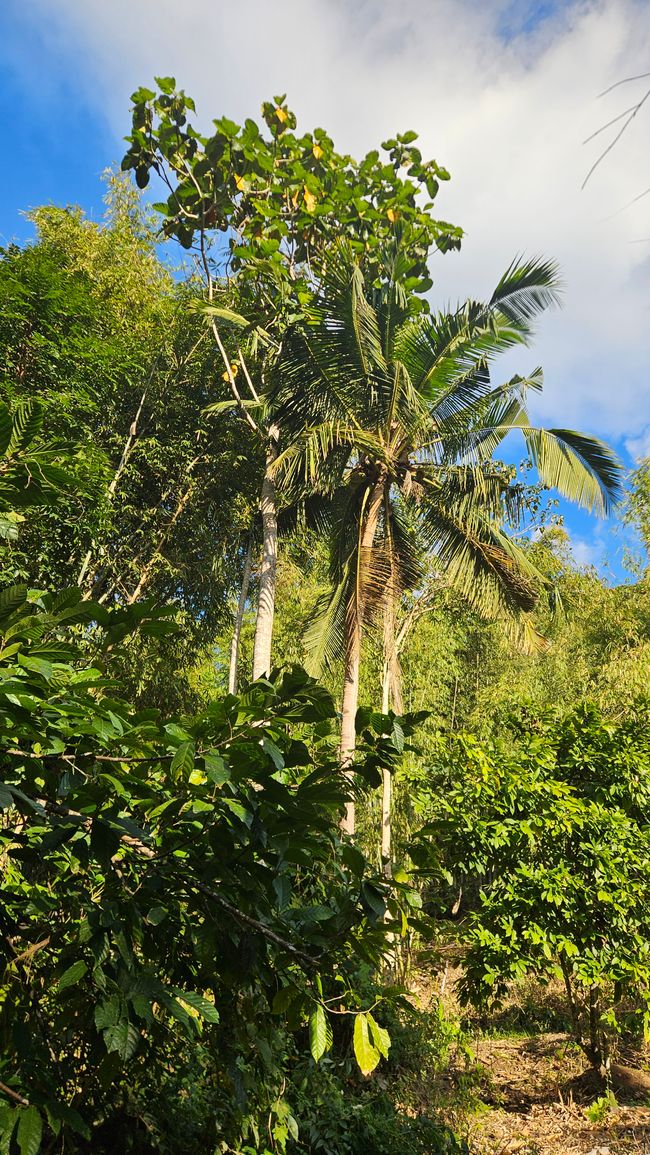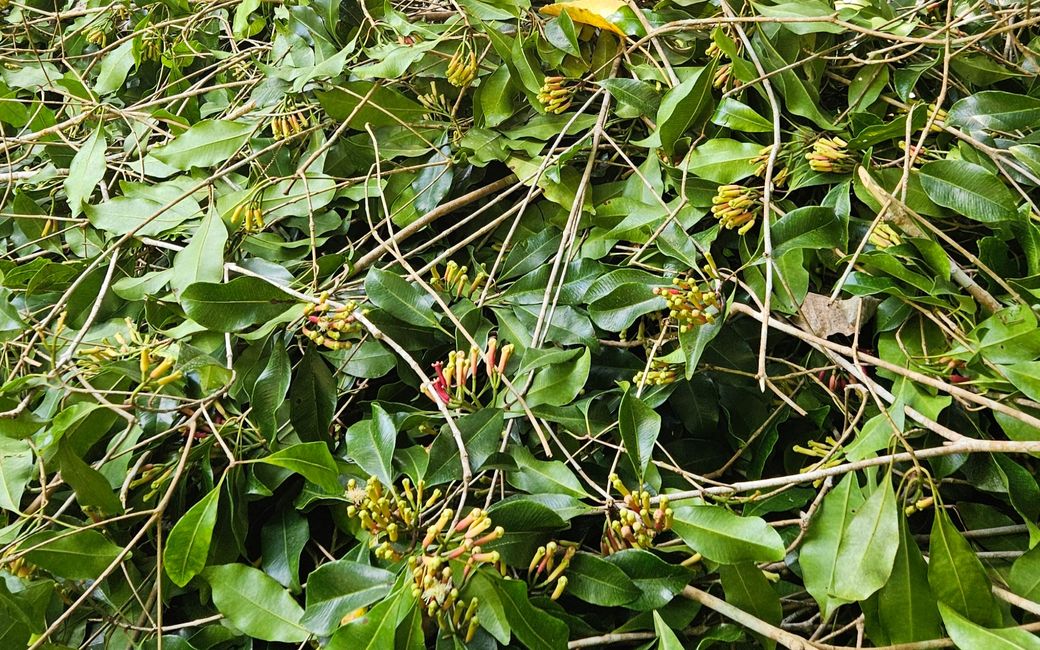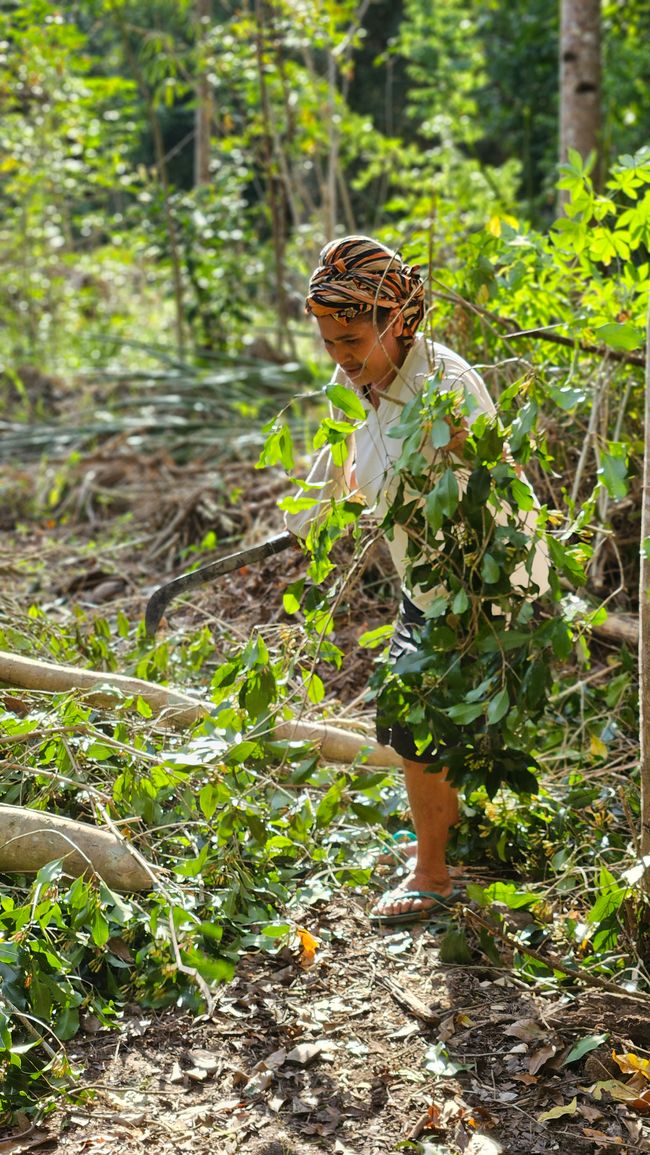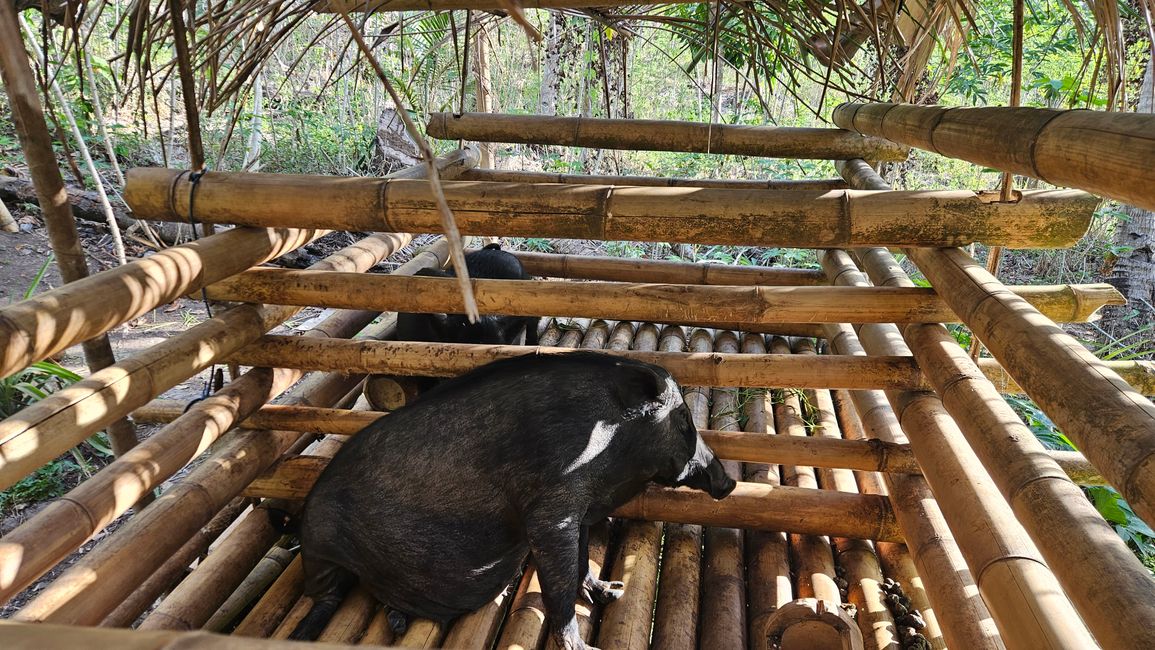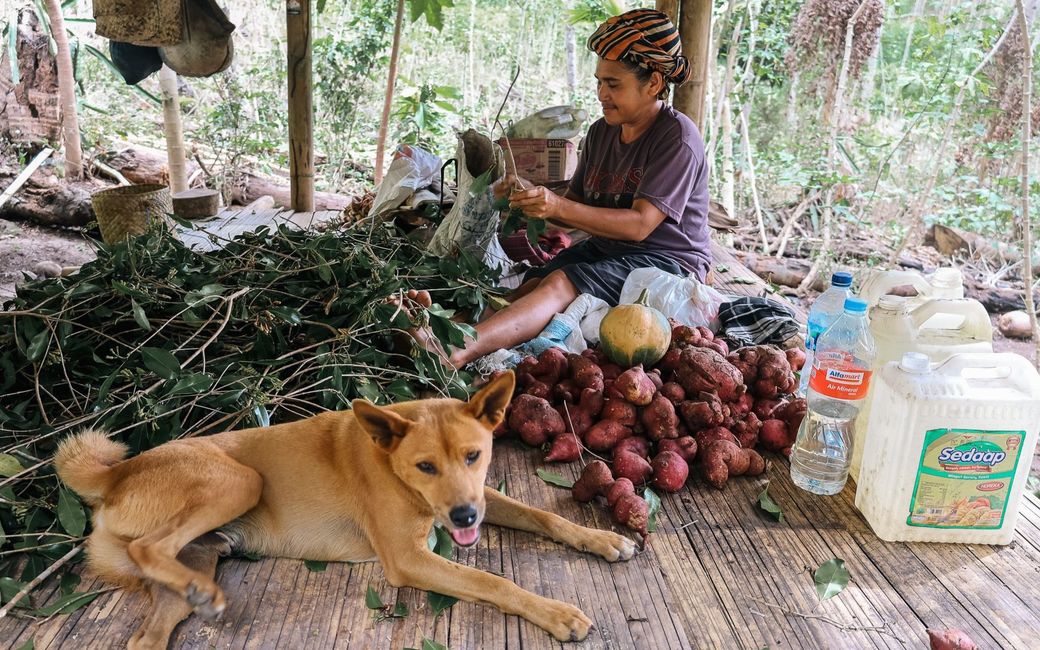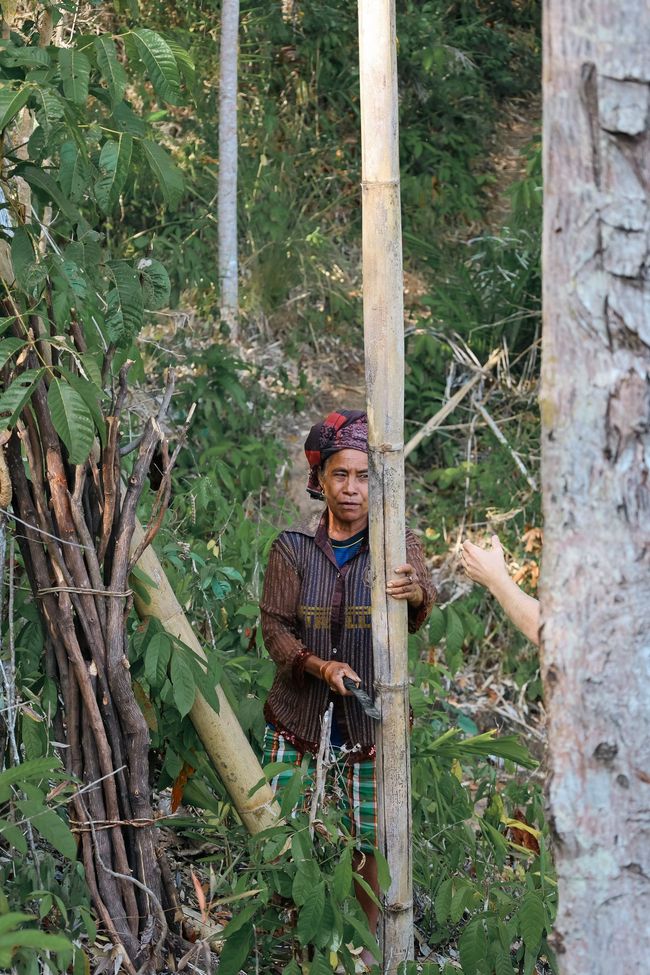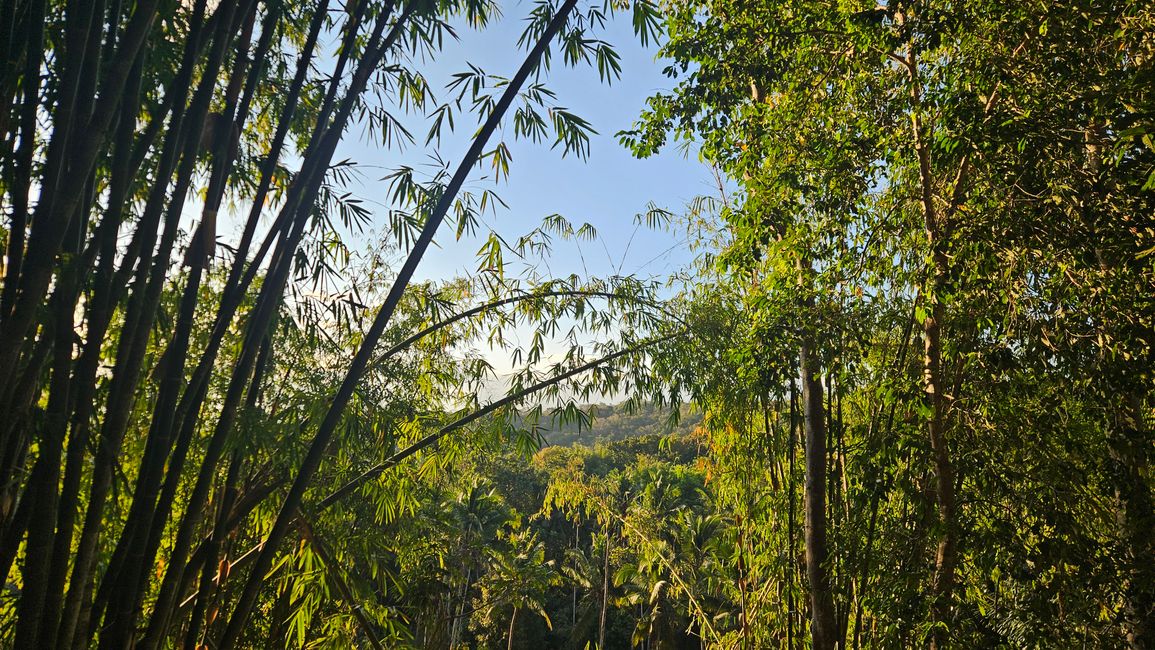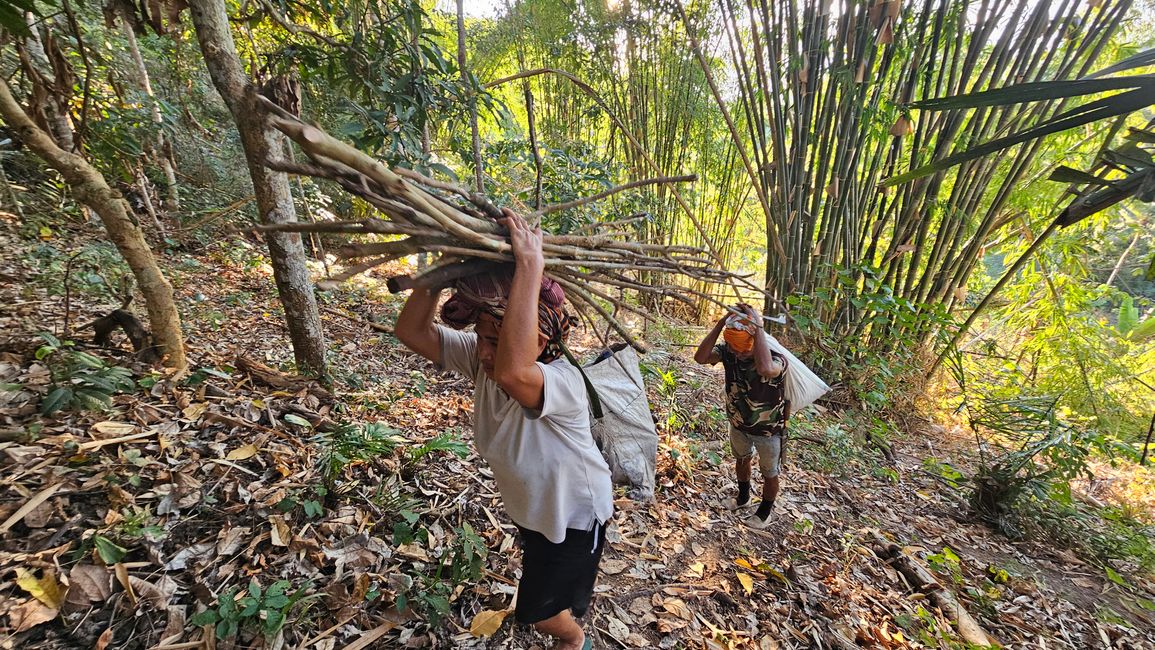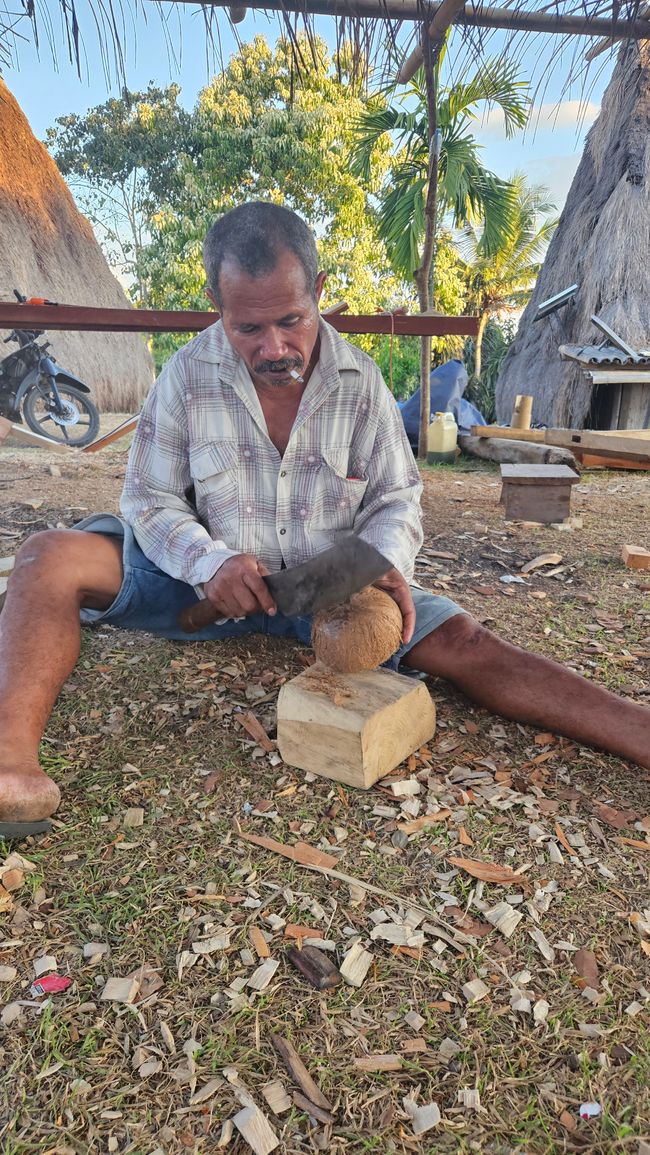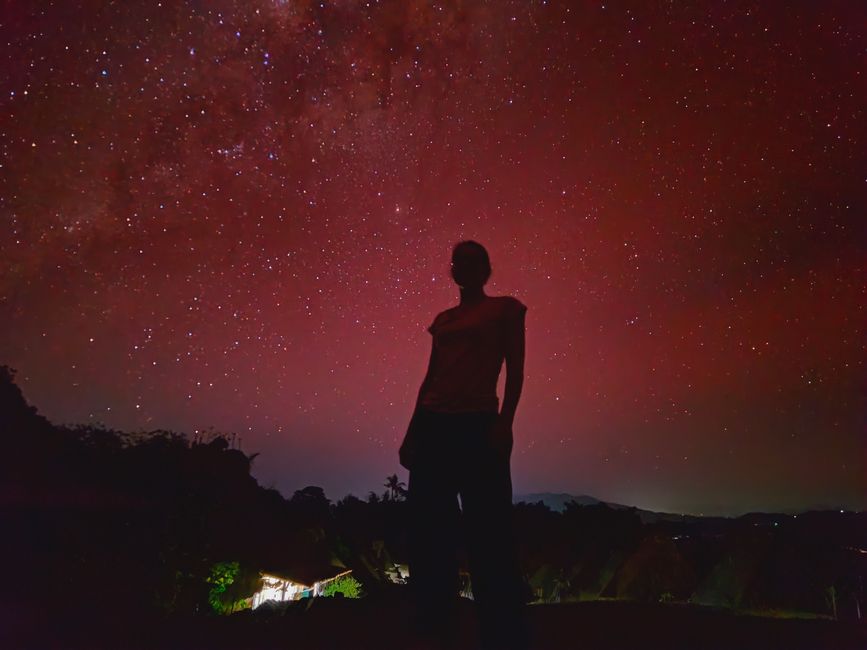Belaraghi
Published: 25.09.2024
Subscribe to Newsletter
When Nicole, Lewis, and I arrived back in Belaraghi a day later, we were immediately invited for lunch and able to watch the construction of Mama Reni's cabin. The day before, we had seen the construction site, but no work was done since it was Sunday. Mama Reni had lived on Sumatra for three years as a nanny, learned English there, and now works as a local guide. She told us that old huts must be rebuilt in the same place and style after being torn down so that the deceased ancestors still have a home there. After completion, the house is consecrated in a ceremony and can then be inhabited again.
I spoke with Mama Reni for quite a while and learned that she used to be responsible for taking elementary school children to the primary school in the next town. She was busy doing this every morning and every afternoon for an hour. However, nowadays all elementary school children stay with friends or relatives in the town of the primary school. Since I intended to visit (at least) one school during the trip anyway, I took the opportunity and agreed with Mama Reni to visit the primary school the next day.
While Lewis, as an aspiring architect, unsuccessfully tried to help with the house construction, Nicole and I were only allowed to help with the dishwashing and then with cooking. Of course, not in the cabin (there would have needed to be a ceremony first), but at the fire pit under the cabin. After we learned that lunch was being cooked by a family for the whole village, we immediately felt twice as useful helping prepare dinner. First, we fried 'corn patties' and then sautéed vegetables. When we finished, it unfortunately turned out that the dinner was only for that family, who then served it cold for our sake later. That's just how it goes with the language barrier...
We spent the rest of the day helping to pluck cloves from the stems. I had never thought before about what kind of plants cloves grow on, what they look like in their un-dried state, and how much work it is to harvest them. In short: cloves grow in clusters on evergreen trees whose branches are pruned at regular intervals. The clove clusters are then roughly separated from the branches on-site and carried home in large bags. At least in Belaraghi, the afternoons and evenings are spent plucking the individual cloves from the clusters so that they can then be spread out on a large plastic tarp and dried in the sun. After 3-4 days in the sun, the cloves look like the ones we know. Throughout Flores, you often see plastic tarps with cloves simply lying by the roadside - and it smells wonderful!
The next morning, I was taken by moped to the primary school after breakfast. It goes from grades 1 to 6 and has a total of 33 children. Four to seven children per class is, of course, a dream for any teacher in Germany, but they also lack teachers and teaching materials here. Only the teacher has a textbook, which she uses to write the tasks on the board; each child has exactly one pen and one notebook, into which they write notes from all subjects, and copies must always be shared between two children, even when something needs to be filled out. Currently, there is no English teacher, so the children only learn the few English words that their teachers can teach. For example, the teacher in the 3rd grade limits this to the numbers from 1 to 20.
I got the impression that the children are very happy. During breaks, they played tag or soccer, tried to talk to me, and gave me high-fives. Some children just couldn’t get enough high-fives. During the lunch break, the children talked while eating instead of playing on their phones (none of the children have a phone), and I distributed my pack of pistachios, which I had spontaneously packed that morning. My three fineliners were a huge hit, which I ended up giving away at the end. I will plan my next school visit better and buy some school supplies beforehand that I can gift to the school.
When I was back in Belaraghi, I timed it just right to catch Mama Nella, who was about to take lunch to Papa Vempi, Nicole, and Lewis in the garden. I helped her carry it and also took a lunch break before my first shift, and the others' second shift, of plucking cloves began. Of course, we started by roughly separating the clusters from the branches. When it got dark, we brought everything back to the village, where the fine work continued.
While we were happily busy plucking cloves, Mama Reni suddenly began talking about 'ceremony.' Shortly thereafter, I was invited once again to the back room of the cabin, where another rooster was sacrificed for me so that I would have a good journey ahead. At least that's how I understood Papa Aurelius, who speaks a little English. The sacrifice wouldn't have been necessary from my point of view, but of course, I still felt very honored.
By the way, I got my first souvenir from Belaraghi: two coconut shell bowls. I found the evenings we spent plucking cloves and drinking Arak from coconut shells so enjoyable that I wanted to have a bowl like that. So, I found a half coconut, and immediately someone helped me with their huge knife to remove the hair. The finishing touches were done less charmingly with a sanding machine. And when I showed this bowl to Mama Nella, she gifted me a lovely, slightly smaller one from her collection. A great souvenir because it’s lightweight, usable, and unlikely to break during transport.
Subscribe to Newsletter
Answer
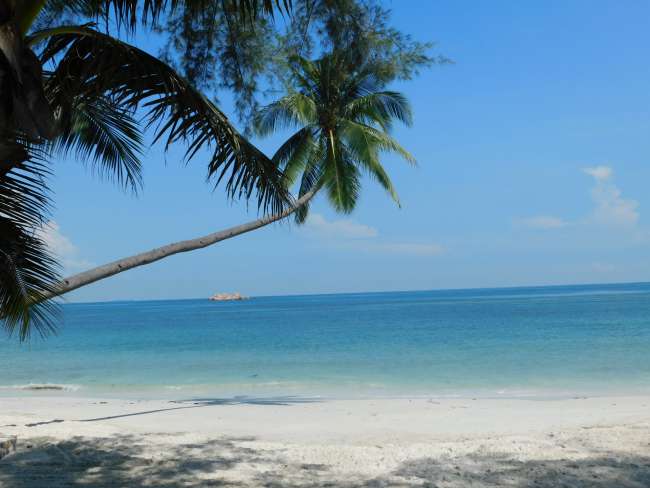
Travel reports Indonesia
